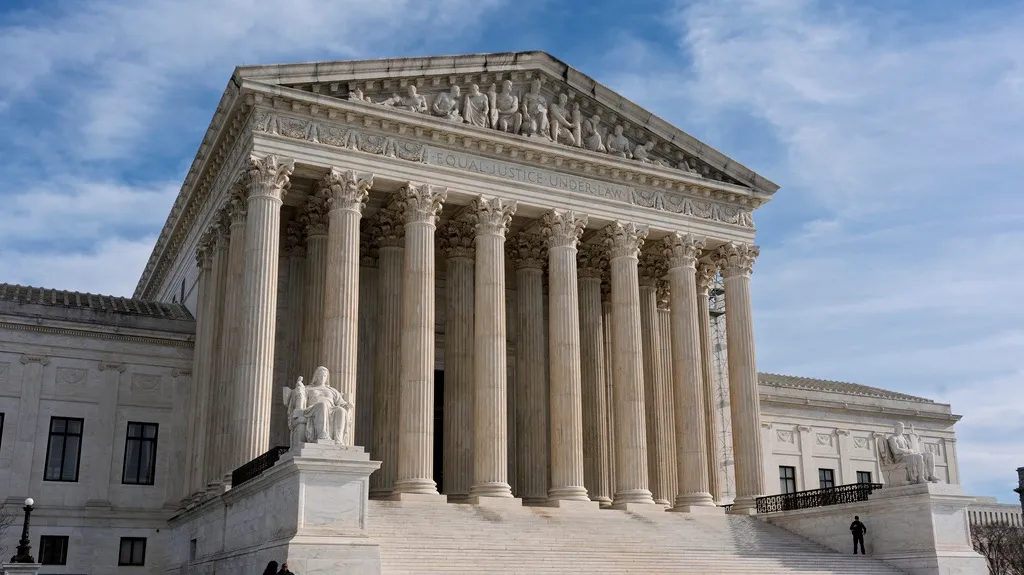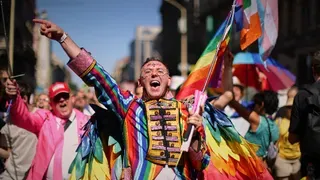December 29, 2011
2011: Seattle's High Impact Year
Shaun Knittel READ TIME: 4 MIN.
Any way you look at it, 2011 was a high-impact year for Seattle. We saw equality advance in ways previously unimagined-even though we had to fight for visibility during Seattle Pride 2011, we were victorious and saw our rainbow colored flag flying proudly atop the Space Needle.
While news of our community wasn't always good, it was, more often than not, a stellar year for LGBT people living in the Pacific Northwest's largest city.
An All-Inclusive City
The Seattle LGBT Commission-which advises the mayor, Council and departments about sexual minority issues, recommends policies and legislation and brings sexual minority communities and the larger Seattle community together-successfully advocated for the inclusion of health care plans offered municipal transgender employees. The commission asked the city in May to remove the exclusions and to provide coverage of gender affirming, surgical, hormonal, psychological, and medical care for its valued transgender employees. The city agreed and, for the first time in Seattle's history provided trans employees with full health care benefits.
The City of Seattle Office of Economic Development in Nov. 2010 launched a website to help celebrate the different neighborhoods by educating the public on the things that made each neighborhood unique, fun and why they should bring their business there. The Capitol Hill neighborhood was ignored. After applied pressure from the local community, the OED changed the verbiage of the neighborhood description to include the proud history of the LGBT people who live, work and shop there.
Snapshot Seattle
The Seattle LGBT Commission in May released a report outlining the results from a 6-week online survey that assessed the needs of LGBT Seattleites on housing, education, health, public safety, community involvement and other issues.
Nearly 1,600 people participated in the survey from June 18 through Jul 31, 2010. Choosing from a multiple-choice list of answers, participants' top three responses were marriage equality (55.5 percent); hate crime violence/harassment (39 percent) and healthcare (32 percent). The survey also asked respondents about the issues that impact them personally. Healthcare (51.6 percent), marriage equality (49 percent) and lack of jobs in this economy (43.4 percent) were the most common responses.
While the survey reflected a diverse cross-section of the LGBT community, the commission acknowledged that it was impossible to accurately capture every segment of the population. While homeless, trans, seniors and youth were represented in the survey they don't feel like the percentages were enough. As a result of that effort they are now reaching out to these communities to get their input before they submit a final report (and suggestions) to Mayor Mike McGinn and the City Council.
HIV/AIDS
Thirty years after the first cases of what became known as AIDS were reported, Seattle's plethora of service organizations came together to honor those whom we've lost to the pandemic. A group calling themselves HIV 30 sprang into action to create a timeline of the disease's impact in our city, as well as present community art pieces that were displayed throughout the city.
"Trying to capture thirty years of HIV is overwhelming, but it's an important milestone in our community and world," Gay City Health Project Executive Director Fred Swanson told EDGE in August. "We gathered a collective of community members including artists, volunteers, and staff at local agencies, people living with and affected by HIV, and just began mapping out what it might look like."
The collective was highly successful and visible, as two community art pieces remain on display in Capitol Hill that depict a 30-year timeline of pictures and statistics about HIV/AIDS, and a collection of 15 painting, photos and stories submitted by Seattle-area artists and individuals who spoke of how the virus impacted their lives.
Brutal Attacks Shock Seattle
Two still unsolved crimes rocked Seattle's LGBT community in 2011.
Louis Chen, a First Hill physician, allegedly killed his partner Eric Cooper and their 2-year-old son, Cooper Chen, in their Seattle apartment in July. The crime sent shockwaves through the community, particularly because the murder involved a young child.
Chen has been charged with two counts of aggravated murder in the first degree. The trial is scheduled for early next year.
Rainier Valley resident Danny Vega was walking in the 4200 block of South Othello Street between 7:30 - 8:30 p.m. on Nov. 15 when three black teenagers assaulted and robbed him. The popular hairdresser died in the hospital on Nov. 27.
Three days after Vega, 58, passed away, Seattle police released a video and photo images of three "people of interest" and publicly declared they will do everything within their power to catch the man's killers. As of press time, police have not made any arrests in connection with Vega's death.
Don't Mess with Our Flag!
That is the message the ownership and management at Seattle's Space Needle heard-loud and clear-as the conceded to community pressure to fly the rainbow flag above the iconic landmark on Seattle Gay Pride Day. It was an affirmation; a symbol that Seattle and the LGBT people who inhabit it (the second largest in the nation) are in sync.
Seattle Pride 2011 was the biggest in city history with more people than ever participating in weeklong events that culminated with the annual Pride Parade and PrideFest at Seattle Center. The parade boasted 180 contingents, nearly 4,500 people marching and 134 floats and vehicles. Seattle Police Department estimated that more than 250,000 spectators lined the streets in downtown Seattle to watch the parade.
Shaun Knittel is an openly gay journalist and public affairs specialist living in Seattle. His work as a photographer, columnist, and reporter has appeared in newspapers and magazines throughout the Pacific Northwest. In addition to writing for EDGE, Knittel is the current Associate Editor for Seattle Gay News.







